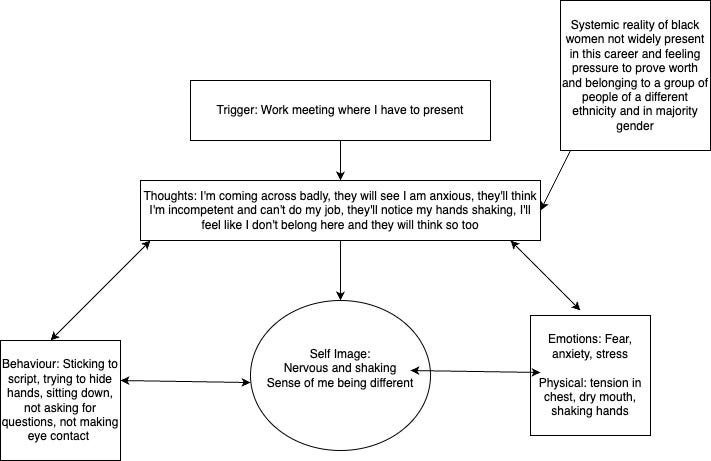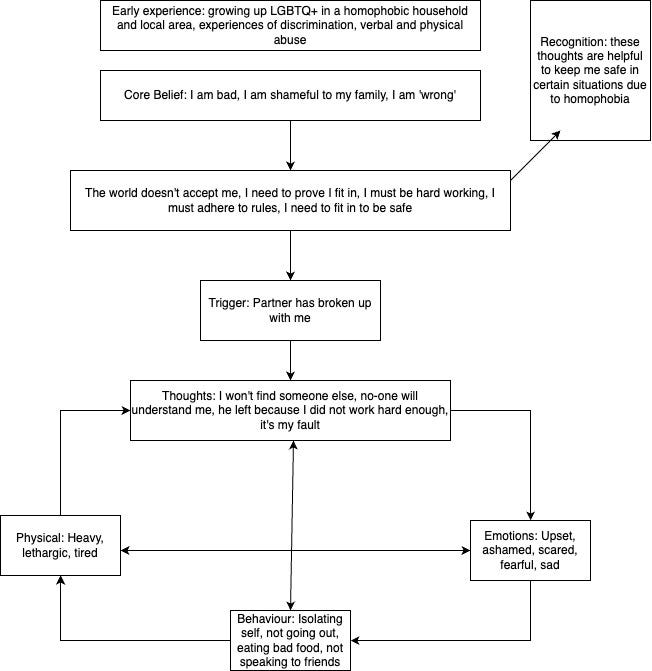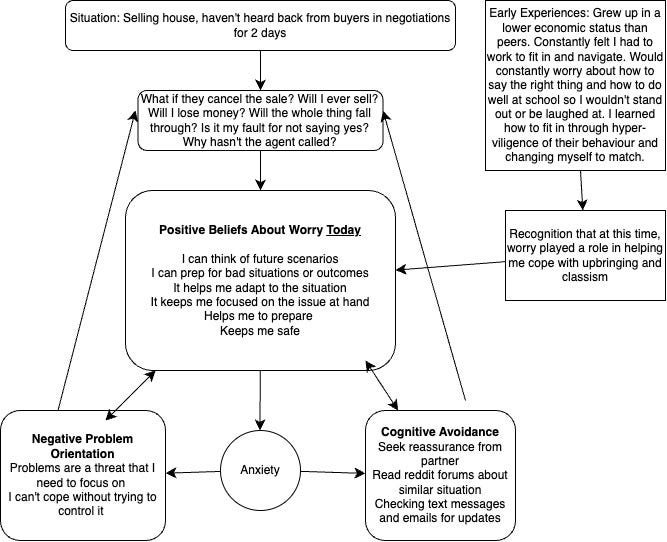When 'Cognitive Distortion' Meets Systemic Reality: CBT in 2025 - Between Sessions February Newsletter
With the growth of the far right, increased minority stress and political tensions entering everyday discourse, a crucial question emerges: do we continue therapy as usual, or do we need to adapt?
CBT has powerful tools for those experiencing systemic oppression, but what happens when thoughts, such as ‘I’m being treated unfairly’ reflect systemic reality rather than cognitive distortion or unhelpful thinking? What do we do? And is CBT more at risk of internalising this response as a problem within the individual compared to other therapies? Our February Newsletter answers these questions.

Between Sessions spoke to Mick Cooper, Professor of Counselling Psychology and author of books such as Psychology at the Heart of Social Change, who noted “there’s not many CBT therapists who would say these issues are not important, but it just doesn’t really feature in the core model or the core therapy”.
However, he highlighted that Critical Therapy Antidote (CTA) — a group who support the clinical space as being functionally apolitical - appears to be more founded by a range of psychotherapy backgrounds, not primarily CBT.
CTA suggest the mental health field has been turned into identity politics, aimed at promoting social revolution, and is moving away from a focus of insight into one’s maladaptive engagement with life. They suggest that critical social justice, or ‘wokeness’, is teaching future therapists to view their primary role as changing society.1
Where Does CBT Sit?
At the heart of CBT is a collaborative formulation with the client which focuses on the clients thoughts, emotions and behaviours, that trap them in a vicious cycle of distress.

Longitudinal formulations may validate how early experiences of discrimination, poverty and other societal factors, have influenced how one may think and feel now, even if they may not be experiencing these things today.
Perhaps, the middle ground is incorporating both elements.
Adding in a fourth dimension of ‘negative view of how the world perceives me’ acknowledges the reality of prejudice, and systemic factors while maintaining the cognitive framework. It may allow for therapeutic exploration of both internal thought processes and external social realities.
This adaptation may help therapists distinguish between distorted thoughts that might benefit from restructuring, versus accurate perceptions of social marginalisation that require validation, empathy and contextual understanding.
It would also create space to explore how societal messages become internalised, affecting the other three components of the cognitive model.
Could Self-Compassion Be the Antidote to External Realities?
While burnout and hopelessness plague many social justice advocates and victims of oppression and discrimination, Compassion-Focused Therapy (CFT) may provide an effective alternative.
A study found that even among dedicated activists, self-compassion practices significantly lowered hopelessnes.2 This research aligns with Kristin Neff's findings that self-compassion serves dual purposes in social justice contexts: providing essential resilience for those experiencing injustice directly, while helping deal effectively with guilt and shame3.
Bridging Individual Therapy and Systemic Awareness: Moving Forward As Therapists
As therapists navigate these complex intersections of psychology and social justice, the path forward may require greater integration rather than division.
Recent empirical studies suggest therapeutic approaches that acknowledge both individual cognitive processes and systemic realities show the most promising outcomes for clients experiencing marginalisation.
“If you reduce everything to the environment, then you do become too socially environmentally reductive . . . there is a place for therapy, but I think there needs to be acknowledgement” said Mick Cooper.
This balance may invite CBT practitioners to expand traditional CBT formulations to include sociopolitical pressures whilst maintaining evidence-based interventions that support resilience and engage with maladaptive thoughts and behaviours, where appropriate.
This may include incorporating more work from Compassion Focused Therapy, when cognitions are painful truths about systemic reality.
This evolution represents not an abandonment of CBT principles, but rather their necessary and compassionate expansion to meet the full complexity of human experience in an unequal world.
How have you navigated this balance in your practice? Share your experiences in the comments and join our growing community of reflective practitioners.
Want to see these concepts in action?
Our paid subscribers get exclusive access below to practical, example formulation templates kindly provided by experienced CBT therapists who have successfully integrated systemic awareness into their clinical work. These real-world examples show exactly how to apply these principles in formulations with your clients tomorrow.
Upcoming articles for paid subscribers build on this, including how to integrate compassionate thought challenging into your CBT work.
Example Formulations for Our Paid Subscribers:
Cynical therapies: Perspectives on the antitherapeutic nature of critical social justice. (2023). Jacobs Well, Queensland: Dr Val Thomas and Ocean Reeve Publishing.
https://mspace.lib.umanitoba.ca/server/api/core/bitstreams/d802fd32-7f95-4970-90c5-66a3c9ed2e69/content
https://greatergood.berkeley.edu/article/item/four_ways_self_compassion_can_help_you_fight_for_social_justice
MSJCC Image: Multicultural and Social Justice Counseling Competencies Conceptual Framework. Reprinted from "Multicultural and social justice counseling competencies: Guidelines for the profession," by M. J. Ratts, A. A. Singh, S. Nassar-McMillan, S. K. Butler, and J. R. McCullough, 2016, Journal of Multicultural Counseling and Development, 44, p. 35. Copyright 2015 by M. J. Ratts, A. A. Singh, S. Nassar-McMillan, S. K. Butler, and J. R. McCullough. Reprinted with permission.







